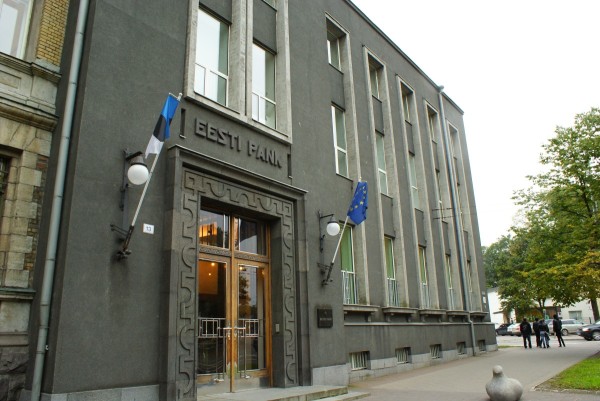“Good relations between Estonia and Germany have two dimensions – on the one hand, our partnership is based upon the solidarity of the European Union and NATO member states and, on the other hand, we share common historical and cultural points of contact,” said the President, Mr. Toomas Hendrik Ilves, at his meeting with the President of the Federal Republic of Germany, Mr. Christian Wulff, who arrived in Estonia on September 28 for a one-day working visit.
President Ilves assured the German President that Estonia wishes to contribute to strengthening the euro area, when it joins in three months’ time.
"I have no doubt whatsoever: for the European Union to operate as an organisation, the rules must be the same for everyone, regardless of their size or local particulars,” said the Estonian Head of State. “Estonia will continue with its current economic policy, which is focused on a conservative and balanced budget policy. We are convinced that this way – the responsible way – is the only one that can lay a foundation for economic growth in the long term, thereby serving the interests of all the citizens of the European Union."
According to President Ilves, the now receding credit crunch vividly demonstrated weak spots in the economic policies of different countries, but he also pointed out the weaknesses of both the international and internal co-ordination mechanisms of the European Union.
"All of this combined led to a weakening of the international strength of the euro zone and the credibility of the euro. We must learn from our previous experiences to combat any future crisis – without forgetting, however, that this crisis is not over yet," the Estonian Head of State emphasised.
In his view, an important conclusion can drawn from the crisis – a strong euro area serves everybody’s interests.
"The efforts of all of the members are required for a strong euro area. Among other reasons, this is required to improve the fiscal position and reduce debt as well as to strengthen the co-ordination of economic policies in the European Union. Estonia supports the strengthening of EU budget policies,” President Ilves said.
“The strength and influence of the European Union are directly dependant on the functionality of our common market and the strength of economy and finance,” emphasised the Estonian Head of State.
Presidents Ilves and Wulff also had a long discussion on energy security.
"A common energy policy is required to ensure the energy security of the European Union, for better co-ordination of national energy policies, and to enable the entire EU to speak as one,” said the Estonian Head of State, adding: “The establishment of a well-operating internal market is also required; energy links between the Member States are the pre-requisites for that, which would finally link the Baltic states with Central Europe."
When speaking about Estonian-German relations, President Ilves recalled the fact that Germany has been one of Estonia’s main five trading partners for a long time and that these two countries are close allies in both the European Union and NATO.
“Our co-operation in the implementation of the Baltic Sea Strategy and Germany’s participation in both the NATO Cyber Defence Centre of Excellence in Tallinn and the air security mission of the Baltic states serve as examples of this. Also, members of the vessel defense team on the German frigate Hamburg will include Estonian defense force members, if and when the vessel is deployed to protect cargo ships during Operation ATLANTA,” told the Estonian Head of State.
Office of the President
Ilves: the EU must apply uniform rules to all its Member States
Eestlased Eestis | 29 Sep 2010 | EWR
Eestlased Eestis
TRENDING
























